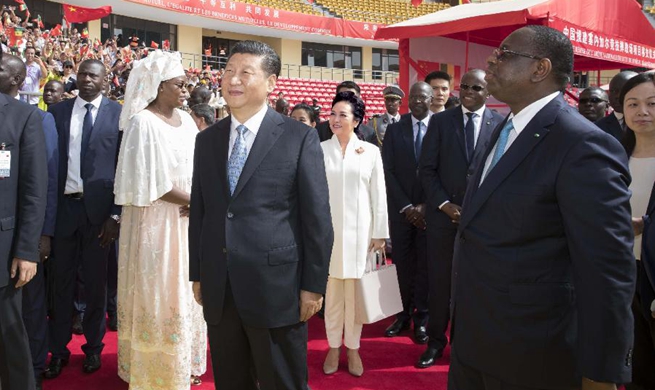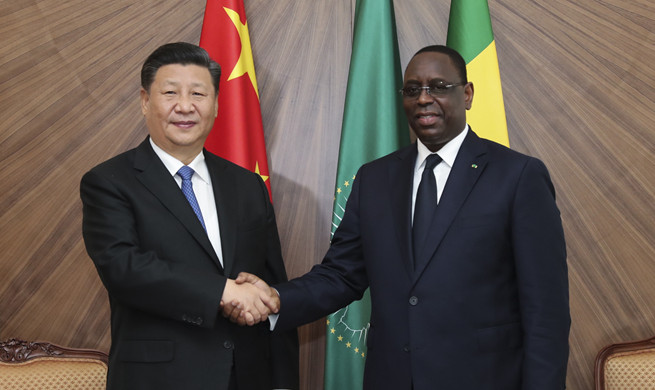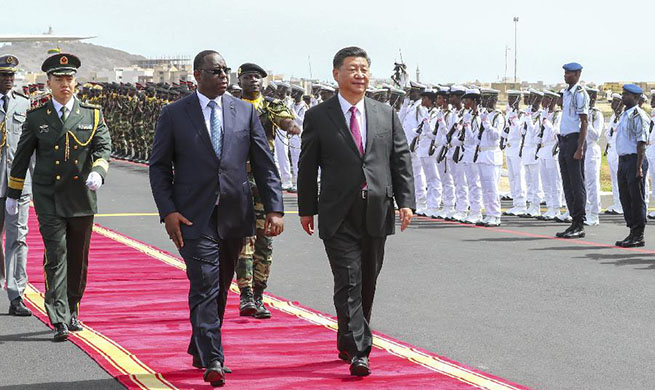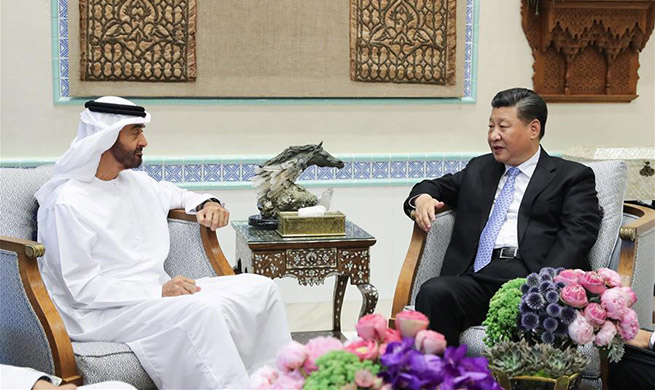BERLIN, July 23 (Xinhua) -- The resignation of footballer Mesut Oezil from Germany's national football team sparked a debate over the pervasiveness of racism in the country on Monday.
German Justice Minister Katarina Barley (SPD) told the press that it was an "alarming sign when a great German football player like Mesut Oezil feels unwanted in his country because of racism and no longer feels represented by the German Football Association (DFB)."
Barley referred to accusations made by Oezil in a lengthy resignation letter in which he complained about facing discrimination from sports officials, the media as well as German football fans because of his Turkish roots.
"In the eyes of Grindel (DFB president Reinhard Grindel) and his helpers I am German when we win, but an immigrant when we lose," Oezil wrote on his Twitter account.
He added he did not feel accepted in German society despite paying taxes, making donations to German schools and being part of the team that won the World Cup. "I used to wear the German shirt with such pride and excitement, but now I don't," he said. "I feel unwanted and think that what I have achieved since my international debut in 2009 has been forgotten."
Following the publication of the widely-publicized resignation letter, sports executives and senior politicians have expressed concerns that development could deprive citizens with migratory backgrounds of an important role model for overcoming cultural divisions in Germany. Oezil's departure from the squad constituted a "serious setback for the integration policy efforts of our country," former DFB president Theo Zwanziger told the German press agency dpa.
The Green party (Gruene) delegate Cem Oezdemir told the newspaper Berliner Zeitung that it would be "fatal" if young Germans of Turkish descent gained the impression that there was no place for them in the national football team. Oezdemir argued that diversity had allowed Germany to win the 2014 World Cup, an experience which stood in stark contrast to the team's recent failure to reach the knock-out stage in Russia.
Echoing Zwanginer's and Oezdemir's concerns, the German Social Democrat (SPD) deputy leader Thorsten Schaefer-Guembel made a public appeal for harmony among German citizens regardless of their roots. "We belong together and will never ever accept racism," Schaefer-Guembel said.
Oezil, 29, was a key member of Germany's World Cup-winning side in 2014 and was voted by fans as the team's player of the year on several occasions. More recently, however, the midfielder faced heavy criticism for having his photograph taken with Turkey's president Recep Tayyip Erdogan shortly before national elections were held in the country.
In a move which could cause further damage to already strained diplomatic relations between Berlin and Ankara, the Turkish government offered vocal praise for Oezil's decision on Monday. "We fully support the honorable decision of our brother Mesut Oezil," a statement by Turkey's Sports Minister Mehmet Kasapoglu read.
Turkish Justice Minister Abdulhamit Guel described Oezil's departure from German football as "the most beautiful goal against the fascist virus," while a spokesperson for Erdogan welcomed an announcement in the resignation letter that he would meet the president again.
Although Oezil's relationship with Erdogan remains highly controversial in Germany, German federal government's integration commissioner Annette Widmann-Mauz (CDU) said on Monday that it was good that the footballer had "finally explained his position".
Widmann-Mauz argued that Oezil's Turkish roots did not mean that he could expect to be spared from all criticism if he chose to support the election campaign of a foreign head of state. Nevertheless, she emphasized that such comments could not take the shape of a "general defamation of players with migratory backgrounds".
















